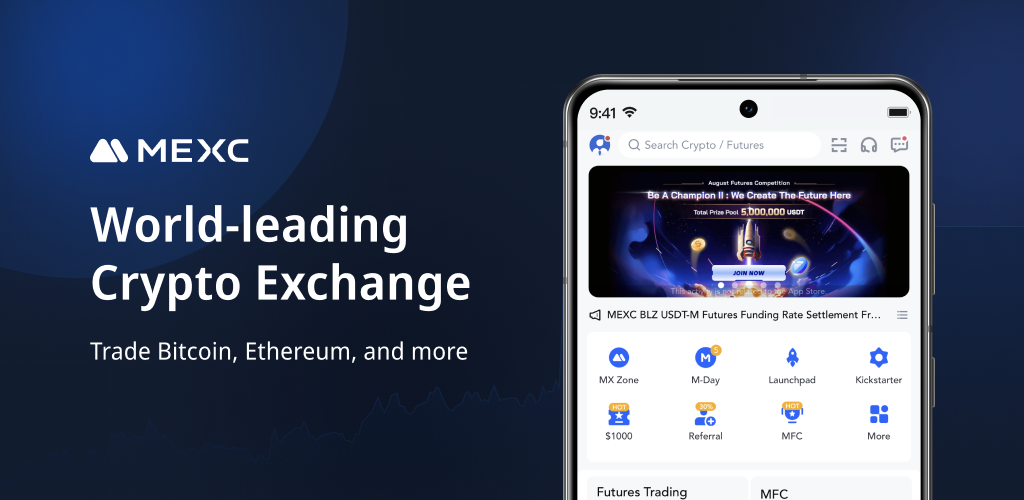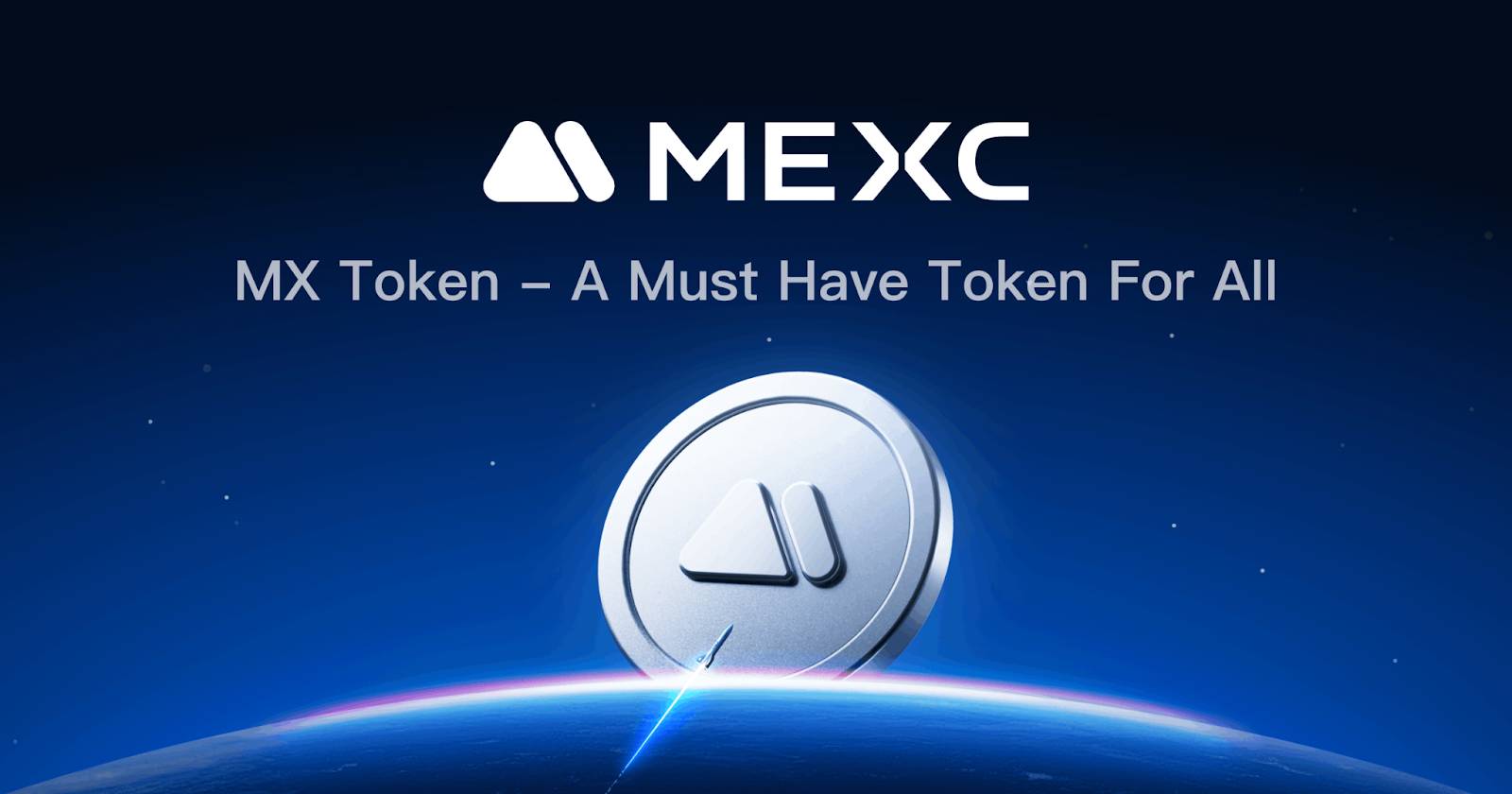
6 minute read
Is MEXC Exchange Banned in India? Review Broker
from MEXC Exchange
by XM Blog
No, MEXC Exchange is not officially banned in India. As of now, Indian users can still access the platform, create accounts, deposit cryptocurrencies, and trade. However, the regulatory landscape around cryptocurrency exchanges in India is evolving rapidly, and users should stay informed to avoid risks. While MEXC isn’t blocked or declared illegal, it also isn’t registered or licensed under any specific Indian regulatory framework, which raises some concerns for compliance, legality, and safety.

✅ Trade with MEXC now: Open An Account 👈
Let’s break down what you really need to know if you’re using or considering using MEXC in India.
What Is MEXC Exchange?
MEXC is a global cryptocurrency exchange established in 2018, known for offering a wide range of digital assets, including lesser-known altcoins, leveraged tokens, and perpetual futures. The platform is widely used by international traders because of its low trading fees, high liquidity, and wide selection of coins.
But what makes MEXC popular among Indian traders is its access to niche tokens early, fast onboarding process, and a relatively easy KYC (Know Your Customer) procedure. Unlike some platforms that block Indian IP addresses, MEXC remains accessible in India—both through desktop browsers and mobile apps.
The Legal Status of Cryptocurrency in India
To understand whether using MEXC is legal or not, you must first understand India’s stance on crypto trading. Cryptocurrency is not illegal in India, but it’s also not fully regulated. Here’s what we know:
The Reserve Bank of India (RBI) had previously banned banks from dealing with crypto exchanges in 2018.
In 2020, the Supreme Court of India lifted that ban, making it possible again for exchanges to operate.
Since 2022, the Indian government has introduced a 30% tax on crypto profits and a 1% TDS (Tax Deducted at Source) on all crypto transactions, signaling that crypto trading is recognized, though tightly monitored.
However, there is no official licensing body for crypto exchanges in India. This means platforms like Binance, KuCoin, MEXC, or OKX are not "banned", but also not officially approved to operate in India. This legal grey area is what creates confusion.
So Why Do People Think MEXC Is Banned in India?
There are a few reasons for the confusion:
Unregistered Status: MEXC is not registered with Indian regulators such as SEBI or RBI. Some users interpret this as being "illegal" or "banned", which is incorrect.
Blocked by UPI and Banks: MEXC doesn’t support INR deposits via UPI or Indian bank transfers. This is due to Indian banks being hesitant to process payments for unregulated exchanges. It creates an impression that the platform is banned, when it’s actually just unsupported by banks.
International Jurisdiction: Since MEXC operates out of Seychelles (and not from within India), some users assume it's a blacklisted or offshore entity. However, many crypto platforms operate internationally without being banned.
Warnings from Indian Authorities: In early 2024, some Indian authorities issued warnings about using foreign exchanges, particularly for large transactions or tax evasion. While this wasn’t targeted at MEXC specifically, it created a wave of fear and misinformation.
Can Indian Users Still Trade on MEXC?
Yes, Indian users can still access and trade on MEXC. But there are important caveats:
You can’t deposit or withdraw INR: MEXC doesn’t support fiat deposits via Indian payment systems like UPI or IMPS.
You’ll need to use crypto: To fund your account, you’ll have to deposit USDT, BTC, or another crypto from a wallet or another exchange that allows INR.
KYC is optional but recommended: For withdrawals above a certain limit, you’ll need to complete KYC verification. MEXC accepts Indian documents.
You are responsible for tax compliance: All profits are taxable under Indian law, even if the platform is based abroad.

✅ Trade with MEXC now: Open An Account 👈
What Are the Risks of Using MEXC in India?
While not banned, using an unregulated exchange does carry some risks:
1. Regulatory Crackdown
If the Indian government decides to crack down on foreign exchanges, you might suddenly lose access. This has happened before—users of Binance, KuCoin, and other global exchanges have reported issues with deposits and withdrawals due to regulatory pressure.
2. No Consumer Protection
Since MEXC is not under Indian jurisdiction, you won’t have access to legal remedies if something goes wrong. Whether it’s a hacking incident, a frozen account, or a technical issue, Indian authorities can’t help you.
3. Tax Tracking
MEXC doesn’t report your trades to Indian tax authorities. But you’re still legally required to report profits, losses, and pay taxes. If you fail to do so, it could lead to tax scrutiny or penalties.
4. Banking Limitations
Because Indian banks often restrict payments to crypto platforms, you may face issues converting crypto to INR. This may force you to use P2P platforms or crypto-to-crypto workarounds, which adds friction and sometimes extra fees.
Are There Alternatives to MEXC for Indian Traders?
Yes. Several crypto exchanges have a more India-friendly setup:
WazirX and CoinDCX: Indian exchanges with INR deposit support.
Binance: While also not regulated in India, it has a larger infrastructure and more stable user experience.
Coinbase: Not fully functional in India but available with limited access.
However, none of these platforms offer the same variety of tokens and leverage options that MEXC does, which is why many traders still prefer using MEXC for altcoin exposure or short-term trading strategies.
Should You Use MEXC in India?
That depends on your goals and risk tolerance.
You should consider using MEXC if:
You want to trade low-cap or new altcoins not available on Indian exchanges.
You’re comfortable handling crypto deposits and withdrawals.
You understand the tax obligations and are prepared to self-report.
You’re an experienced trader who needs advanced features like leveraged tokens or perpetual contracts.
You should avoid using MEXC if:
You want to invest via INR and avoid crypto-only transactions.
You’re new to trading and need regulatory protection.
You’re uncomfortable with legal grey zones or potential account risks.
What Can the Future Hold for MEXC in India?
India’s crypto policy is still under development. There are signals that the government may eventually require licensing and compliance from all foreign exchanges offering services in India. If that happens, platforms like MEXC will either need to register or restrict access for Indian users.
In the meantime, there are no signs of an outright ban against MEXC. Indian users continue to trade freely on the platform. However, caution is warranted. Traders should:
Avoid keeping large balances on the platform long-term.
Withdraw profits regularly to private wallets or more regulated exchanges.
Keep accurate records for tax reporting.
Watch for official updates from RBI, SEBI, and the Ministry of Finance.
Final Verdict: Is MEXC Exchange Banned in India?
No, MEXC is not banned in India. It is fully accessible, and many Indian users are trading actively on the platform. However, it operates outside India’s legal framework, which means there are risks in terms of regulation, tax, and legal protection.
If you choose to use MEXC in India, make sure to trade responsibly, stay informed, and always comply with Indian tax regulations.
✅ Trade with MEXC now: Open An Account 👈

